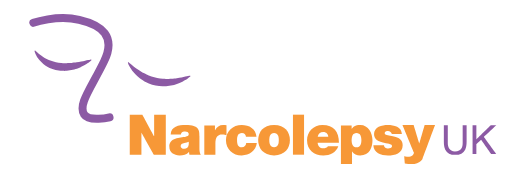At 16, I was the typical school student. I loved sports, enjoyed English and hated maths. I was constantly busy, juggling multiple extracurricular commitments throughout the week in addition to my heavy GCSE load. It was at this point in school that things started to feel hard. Not your typical, ‘overworked’ student but more ‘I cannot physically sleep enough to keep up with my whole life’ type feeling.
My narcolepsy, unbeknownst to me at the time, began to force me to stop some of my extracurriculas to allow me more energy for everything else. It even forced me to drop a GCSE and yet still I was falling asleep in classes every day.
In 2021, when COVID19 hit, exams were cancelled, and I was out of school for six months. A dream for me; I could create my own routine, sleep as much or as little as I needed and focus on activities and subjects that I would be studying at college. But this new-found routine created a real shock for me when it was time to return to full-time education once again.
In September 2021, I moved to a sixth-form college. The first challenge presented itself in the form of the train I had to get every morning and evening. My friends and I became quickly aware of the problem this would present. I very often nearly missed my stop and when I actually did, my dad had to rescue me at the next station.
At this point I was fed up. I did my research, called my self a hypochondriac multiple times, but knew only a professional would be able to give me an answer and so I sought out the help of my GP. Given the COVID climate, it was likely one of the worst times in UK history to seek such a complex diagnosis. My GP was unaware of ‘narcolepsy’, instead referring me to a neurologist in November of 2021.
It took eight months before I finally saw my neurologist Dr Joseph Anderson, a life saver.
A 20-minute appointment changed my whole perspective on everything I had experienced up to that point and everything since. Just a week before my first A-Level exam I was given an early diagnosis of type 1 narcolepsy (i.e. narcolepsy with cataplexy) and prescribed a stimulant called modafinil. My official diagnosis came six months later, after a lumbar puncture to measure my levels of hypocretin.
This official diagnosis was a genuine relief. I no longer had to feel guilty about the way I was feeling, but in addition I was also not alone, I now had a whole community of people who knew so much more than me, a huge supporting factor as I began to navigate my diagnosis.
I finished my A-Levels, gained good grades, and even had a full offer to my top university. But my first solo trip overseas changed a lot for me. I realised I dreaded the idea of going back to full-time education for three years. I felt like I had finally started to understand myself and that going back into the same environment I had been struggling in for so long wasn’t going to be productive for me in the long run.
So, in August 2022, I declined my university offer and set my sights on Australia, departing in February 2023.
I have been travelling around Australia for six months now, enjoying the lows and highs that come with backpacking and learning from real-life experiences. Solo travel has allowed me to work on my own schedule, with no external pressures or deadlines to worry about as well as meeting people with their own narcolepsy stories and journeys for the very first time. I have learnt about the difficulties faced by those in the Australian narcolepsy community, the limited medication on offer and the expense incurred by those who cannot access it through the government’s Pharmaceutical Benefits Scheme.
It has been interesting to travel and meet so many people with so many different ideas about the condition. I enjoy helping people to understand what narcolepsy is and how it can affect daily life. The unexpectedly meeting of other people with narcolepsy has been great too. There is a mutual understanding that is empowering.
Travelling has allowed me to explore a whole new layer of life within myself. I have learned to look inward at myself, understand what it is I need to feel energised and able to support myself because sometimes that is all I have. This six months of self-reliance has enabled me in ways I never thought possible. I am much more forgiving of myself, understanding my own limits and needs more now than ever before. A medical condition or disability should never define anyone’s life.
Narcolepsy will always be a part of my journey wherever I am so I may as well just travel the world and expand at least a few people’s knowledge on my way.
Follow my travels on Instagram: @erin.notesfromaus

